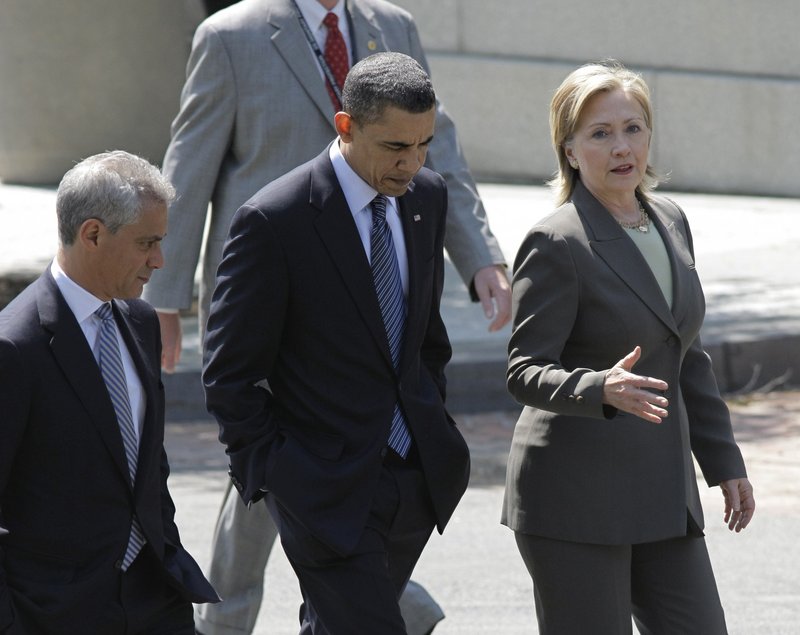WASHINGTON — President Obama’s pledge to one day rid the world of nuclear weapons runs up against global realities this week when representatives from 47 countries try to craft an agreement on keeping nuclear weapons out of terrorist hands.
Sweeping or even bold new strategies were, however, unlikely to emerge from the two-day gathering that begins today. But Obama invited the swarm of world leaders as an important step to intensify global focus on one of the most serious nuclear proliferation threats: a world in which non-state actors – like the al-Qaida terrorist organization – obtain nuclear materials.
The president has set a goal of ensuring all nuclear materials worldwide are secured from theft or diversion within four years.
On the table, too, will be Iran’s perceived attempts to build a nuclear weapon in violation of the global Nuclear Nonproliferation Treaty, and North Korea’s nuclear weapons stockpile and exports of nuclear materials and technology.
“We want to get the world’s attention focused where we think it needs to be with these continuing efforts by al-Qaida and others to get just enough nuclear material to cause terrible havoc, destruction and loss of life somewhere in the world,” Secretary of State Hillary Rodham Clinton said in an interview broadcast Sunday on ABC’s “This Week.”
Clinton said the gathering would be the largest assembly of world leaders hosted by an American president since the 1945 San Francisco conference that founded the United Nations.
Obama hoped to set the tone with one-on-one meetings Sunday with the leaders of nuclear states India and Pakistan, as well as South Africa and Kazakhstan, which have given up nuclear weapons programs.
“These meetings will be an opportunity for the president to underscore the grave danger of nuclear terrorism to global security, while also addressing a range of bilateral issues with each country,” said Ben Rhodes, a deputy national security adviser.
Iran and North Korea were not invited because they are viewed as violators of the nonproliferation agreement.
Syria was left off the invitation list because the United States believes Damascus also has nuclear ambitions. An Israeli airstrike in 2007 destroyed what Washington claims was a nearly completed nuclear reactor designed to make plutonium.
Iran’s nuclear program likely will come up as Obama pushes for a U.N. Security Council resolution calling for additional sanctions against Tehran.
Israel, meanwhile, said last week that Prime Minister Benjamin Netanyahu would not attend the conference as planned. Insiders said he was worried that Turkey and Egypt would use the summit to challenge him over his country’s nuclear arsenal, which the Jewish state never has acknowledged.
Obama opens the conference today with a working dinner, and plans to meet individually with the leaders of Jordan, Malaysia, Armenia and China. The sessions close Tuesday with a joint statement on efforts to prevent the transfer of nuclear materials and technology and to keep them locked up.
The Washington conference is part of Obama’s campaign to rid the world of nuclear weapons, which have been used only by the United States to force a Japanese surrender in World War II. The high-flown goal, which the president admits likely will not be reality in his lifetime, began a year ago in Prague when he laid out plans for significant nuclear reductions.
Send questions/comments to the editors.



Success. Please wait for the page to reload. If the page does not reload within 5 seconds, please refresh the page.
Enter your email and password to access comments.
Hi, to comment on stories you must . This profile is in addition to your subscription and website login.
Already have a commenting profile? .
Invalid username/password.
Please check your email to confirm and complete your registration.
Only subscribers are eligible to post comments. Please subscribe or login first for digital access. Here’s why.
Use the form below to reset your password. When you've submitted your account email, we will send an email with a reset code.